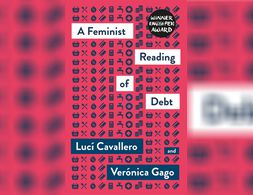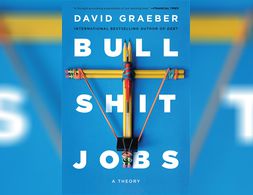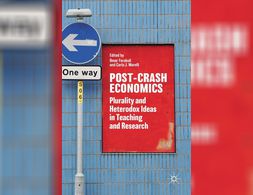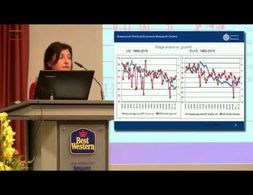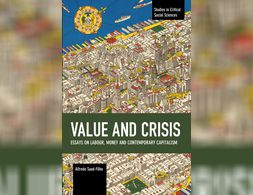✕
311 results
Macroeconomics in Context: A European Perspective lays out the principles of macroeconomics in a manner that is thorough, up to date, and relevant to students. With a clear presentation of economic theory throughout, this latest addition to the bestselling "In Context" set of textbooks is written with a specific focus on European data, institutions, and historical events, offering engaging treatment of high-interest topics, including sustainability, Brexit, the euro crisis, and rising inequality. Policy issues are presented in context (historical, institutional, social, political, and ethical), and always with reference to human well-being.
With a focus on Chile, Pinochet’s Economic Accomplices: An Unequal Country byForce uses theoretical arguments and empirical studies to argue that focusing onthe behavior of economic actors of the dictatorship is crucial to achieve basic objectivesin terms of justice, memory, reparation, and non-repetition measures.
Written by the Nobel Prize winners in Economics Robert Shiller and George Akerlof, this book shows how deception and manipulation play a big role in the economic behavior of individuals, as well as showing how the assumption of "perfect information" is far away from the truth. Through both quantitative data and stories of how to reduce this noxious phenomenon, the authors paint a pretty different picture of how markets really works in a hyper-communicative scenario like nowadays.
In this sharp intervention, authors Lucí Cavallero and Verónica Gago defiantly develop a feminist understanding of debt, showing its impact on women and members of the LGBTQ+ community and examining the relationship between debt and social reproduction.
In this book, the author, Intan Suwandi, engages with the question of imperialism through the specific channel of Global Value Chains.
A Theory From bestselling writer David Graeber a master of opening up thought and stimulating debate Slate a powerful argument against the rise of meaningless unfulfilling jobs and their consequences Does your job make a meaningful contribution to the world In the spring of 2013 David Graeber asked this question …
As the world's energy system faces a period of unprecedented change, a global struggle over who controls the sector--and for what purposes--is intensifying. The question of "green capitalism" is now unavoidable, for capitalist planners and anti-capitalist struggles alike.
This lecture acts as an introduction to the Macroeconomics course (ECON 720) at John Jay College. Throughout the lecture, the classical and Keynesian conceptions of macroeconomic relationships are contrasted.
This book demonstrates the continuing relevance of economics for understanding the world, through a restatement of the importance of plurality and heterodox ideas for teaching and research.
"The Company of Strangers: A Natural History of Economic Life" by Paul Seabright is an engaging and informative book that explores the complex relationship between economic behavior and human instincts. Seabright uses real-world examples to present complex ideas in a clear and accessible way. The author argues that the market is not only a place for exchanging goods and services but also relies on trust, cooperation, and social norms.
Money is the fantasy that makes the world go round. Where did it come from and what is its future? From the Bank of England to Bitcoin and the Bristol Pound, LSE sociologist Nigel Dodd explores.
What is economics? What can - and can't - it explain about the world? Why does it matter?
A comprehensive account of how government deficits and debt drive inflation
The Privatized State shows how privatization undermines the very reason political institutions exist in the first place, and advocates for a new way of administering public affairs that is more democratic and just.
The course will teach students to analyze the goals, implementation, and outcomes of economic policy.
How has financialisation changed saving What are its implications on a macro economic level and from a welfare state perspective Craig Berry I PEEL
Deforestation is estimated to be responsible for about 12-29% of global greenhouse gas emissions. This essay will explore ecological economics as an alternative lens through which to approach forest conservation and the acceleration of climate change.
Özlem Onaran analyses the current problems of secular stagnation from a global perspective. At the core of global economic problems is insufficient demand caused by falling wage shares, because most individual countries, and the world as a whole are “wage-led”. Hence a strategy for global growth is to aim at increasing wages and thus the wage share, and the abandonment of policies focusing purely on national competitiveness. Financialization has broken the link between corporate profitability and investment. Reregulation of finance and higher public investment is required in order to crowd in private investment, in this way, reversing the declining trend of potential output growth.
In this paper the main developments in post-Keynesian macroeconomics since the mid- 1990s will be reviewed. For this purpose the main differences between heterodox economics in general, including post-Keynesian economics, and orthodox economics will be reiterated and an overview over the strands of post-Keynesian economics, their commonalities and developments since the 1930s will be outlined. This will provide the grounds for touching upon three important areas of development and progress of post-Keynesian macroeconomics since the mid-1990s: first, the integration of distribution issues and distributional conflict into short- and long-run macroeconomics, both in theoretical and in empirical/applied works; second, the integrated analysis of money, finance and macroeconomics and its application to changing institutional and historical circumstances, like the process of financialisation; and third, the development of full-blown macroeconomic models, providing alternatives to the mainstream 'New Consensus Model' (NCM), and allowing to derive a full macroeconomic policy mix as a more convincing alternative to the one implied and proposed by the mainstream NCM, which has desperately failed in the face of the recent crises.
The effects of the 2020 pandemic on the Latin-American region: a thorough before-after analysis.
Value and Crisis brings together selected essays written by Alfredo Saad-Filho, one of the most prominent Marxist political economists writing today. Divided into two parts, "Essays on the Theory of Value" and "Essays on Contemporary Capitalism," this book examines the labour theory of value from a rich and innovative perspective from which fresh insights are derived.
Foundational economy is the most important concept you have never heard of. The foundational encompasses material utilities like water, gas and electricity and providential services like education, health and care. Taken together, these services matter economically and politically because they are the collectively consumed infrastructure of everyday life, the basis of civilization and should be citizen rights.
This edited volume explores how dependency theories can be adapted and applied to understand limits and possibilities for development in Latin America and Europe It explores core periphery relations across different sets of countries specific mechanisms of dependency as well as the role of race and gender in dependency analysis …
We use cookies on our website. Click on Accept to help us to make Exploring Economics constantly better!




